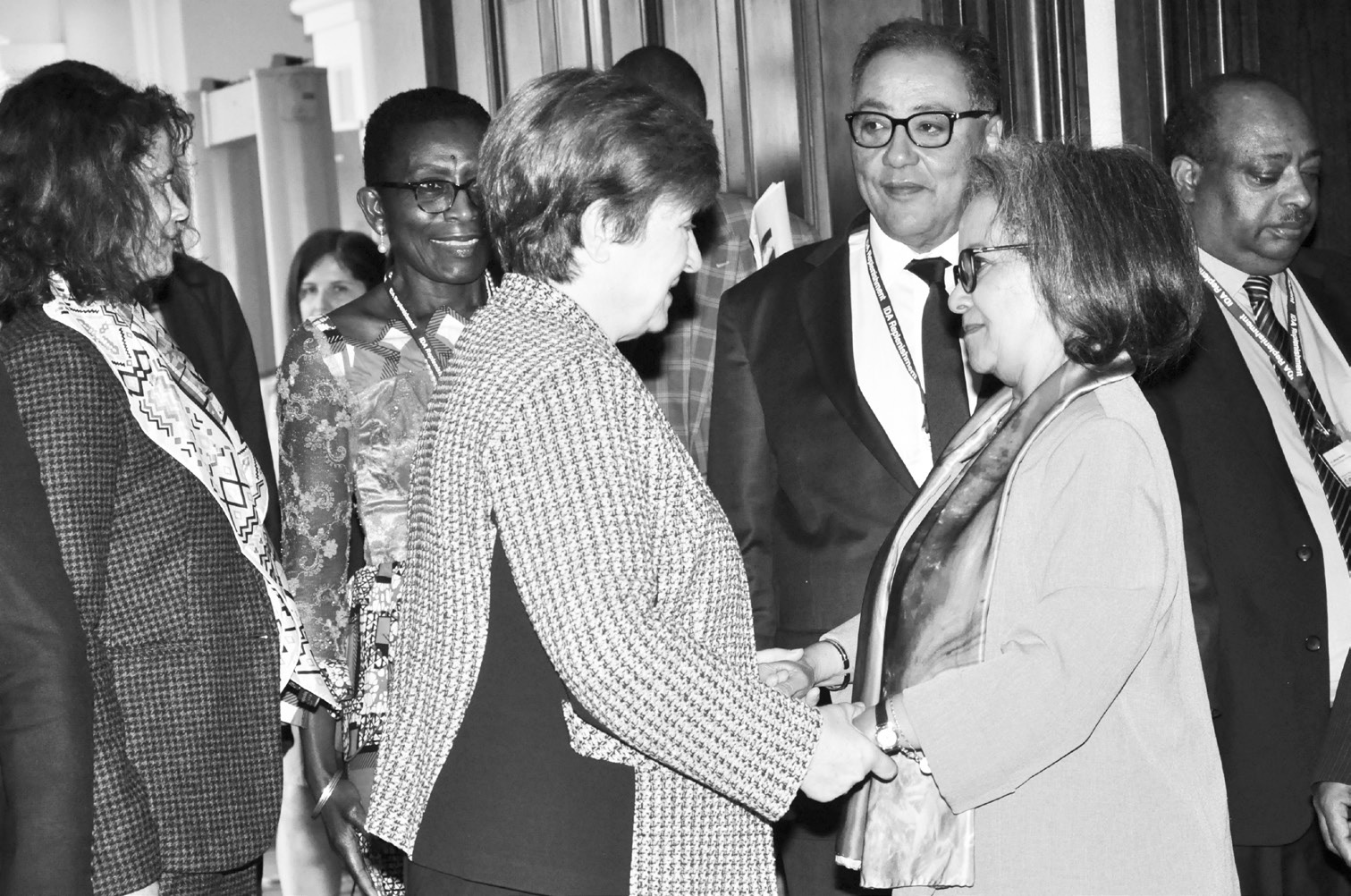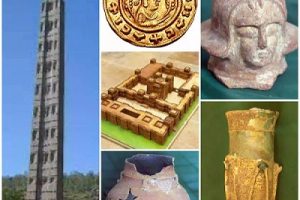
The 19th international development association meeting, that is also known as an international finance assistance program, could not come at a more appropriate time as it held its three-day meeting here in Addis Ababa. More than 30 top officials of the International Monetary Fund (IMF) as well as some 220 representatives of donor countries have been attending this meeting which was the first of its kind to be held here.
Ethiopian president Shalework Zewde has addressed the gathering both in recognition of international support and to highlight the challenges of economic growth.
The main objective of the meeting was not only to review past performance but also evaluate the amount of assistance recipient countries will need to finance their development programs in the three year period from 2021-2023. It was also disclosed that Addis Ababa was selected as the venue of the meeting in recognition of Ethiopia’s commendable achievements in its continued growth trajectory as well as its praiseworthy utilization development assistance.
In the current budget year, the IMF is expected to provide Ethiopia a total of 1.3 billion dollars in the form of loan and assistance. It is to be recalled that the Fund had agreed to supply assistance worth 5 billion dollars in the last two years .
The IMF is supporting Ethiopia’s economic reform agenda since day one. It has brought the country hundreds of millions of dollars in emergency development assistance as well as in budgetary support. Recently, the Fund has signed assistance agreement with the Ethiopian government worth 500 million dollars as additional support for the reform program that is facing multiple economic challenges. Whether driven by ideological or pragmatic consideration, the Fund is an indispensable supporter of Ethiopia and is expected to remain so all through the reform process such as the partial or full privatization program the government is currently trying to implement.
Although Ethiopia’s macroeconomic situation is so far described as stable, the country’s economy is rock by rising inflation, unstable prices, hard currency shortage and decreasing earnings from foreign trade that often take the form of a typical economic downturn. No doubt Ethiopia’s economy is cooling down. The signs are abundant.
To take only one example, the construction sector is hard-hit by rising costs of construction materials, such as steel and cement in particular whose cost has reached an all time high.
The power rationing has led to sharp rise in the price of a quintal of cement that has reached 410 Birr this week from 260 Birr last month. Power rationing has caused cement factories to work under capacity and a sharp rise in production costs.
According to recent reports, cement factories have to work 15 days in a month while staying idle the remaining fifteen days due to frequent power outages.
This has led them to work under capacity and incur losses while the future prospects for tens of thousands of cement workers such as those employed by Dangote Cement for instance, is put in jeopardy. Rising costs and falling revenues might lead to layoffs. The government is said to be trying to put retail prices of cement under control although how it would manage to do so is not clear.
The paradox of the energy sector is staggering indeed. The country is building one of the biggest dams in the world. There are a number of less important hydroelectric power stations that have become operational over the last few years. Yet, Ethiopia is, at least for now, facing acute energy shortage that might jeopardize its grand vision of reaching the middle-income economic status in the not distant future.
How to reconcile the contradictions between positive economic growth scenario and currently outstanding challenges is no doubt one of the toughest homework the country’s reformist government will continue to face and is expected to address as speedily as possible.
The economic difficulties aside, Ethiopia’s 389 billion Birr budget for next year, as recently approved by the country’s parliament, partially relies on support from international monetary institutions as well as bilateral donors.
However, amid the darker clouds that are hovering over the current state of the economy, the IMF has a more positive appraisal. Once again, its growth forecast for next year is not only positive but also projected to be greater than the previous year.
It was also disclosed at the gathering that Ethiopia was selected among many countries to host the high-level gathering in recognition of its positive performance. The IMF bigwigs have also confirmed that Ethiopia has properly used the money it received from Western donors. A field visit was said to be conducted by the delegations of donor institutions to see how the country is using the huge assistance money.
In the last ten years or so alone, Ethiopia is said to have received more than 5 billion USD in development assistance. This makes the country , the leading beneficiary from the Fund as well as from other lending sources.
Meanwhile, a gathering of economic gurus and policy makers has also taken place in Addis this week, this time to shed light on the role of Chinese economic activities in Ethiopia particularly in the area of manpower management and the verdict was not so positive.
At the gathering sponsored by the British-based prestigious London School of Economics, the key speaker mainly touched upon Chinese companies that hire so many local labor force but fell short of expectations as far as levels of pay and treatment of workers were concerned.
Chinese companies have faced criticism at the meeting here research findings on the subject were presented. One is the not-so- ideal relationship between employers and workers due to cultural, linguistic and other differences that often lead to conflicts and mistreatments at workplaces. The pay structure of Chinese companies is also another target of the criticism. In the absence of a law on minimum wage for Ethiopian workers, and the abundance of cheap unskilled labor, the Chinese are said to pay law wages to their Ethiopian workers.
In spite of all this however, the Chinese have scored a plus for providing jobs to many workers when compared to Western companies. The general consensus is that Chinese companies in Ethiopia are creating more jobs than their Western counterparts.
Wage levels at Chinese companies are said to be comparatively lower than in other enterprises. However, Chinese employers, like their Western counterparts, as well as lending institutions like the IMF, are indispensable partners in Ethiopia’s quest for economic growth now as in the future.
Representatives of Chinese companies who attended the meeting did not receive the criticism without comment. Some of them were quoted by the media as saying that the problems in labor relations between workers and employers largely stem from the fact that students who graduate from colleges and universities are generally ill-prepared to discharge their responsibilities once they join the labor market.
This in turn entails more costs on the part of employers for skill upgrading and training. Local colleges and universities are not preparing students for future employment because the training they give is more theoretical than practical and less work oriented. This kind of comment is not new and the government too recognizes the shortcomings in this particular field although it has so far done little to overcome them.
Were the two conferences coincidental or synchronized? The former assumption would be more realistic. Nevertheless, the coincidence not only highlights the important place Ethiopia is assuming both by Western and Chinese development partners.
While the IMF has come out openly in support of the economic reform program of the government, for the Chinese, it business as usual. Generally speaking, the Chinese are comfortable to work with any regime, reformist or conservative, as long as they promote bilateral interests in a balanced way.
The Chinese government promotes a policy of non-interference in the domestic affairs of any country, irrespective of the system of government in place. Ethiopia being the most important country in the Horn, as far as economic relations are concerned, it has more significance for the Chinese who are working hard to implement their Bridge and Road Initiative and provide generous economic and financial assistance to the country.
The new reformist government of Ethiopia holds a kind ‘equidistant diplomacy’ in its dealing with the West and the Chinese as well. It handles both sides with care and balance without favoring one over the other. Ethiopian diplomacy towards China, whose cornerstone was placed by Emperor Haile Sellasie and Chairman Mao Zedong and foreign minister Zhou En Lai in 1971, envisaged this kind of economic policy based on mutual interests or mutual advantages.
Former American Ambassador To Ethiopia, David Shinn, in an article he wrote on the subject says that, “In 1971, less than a year after recognizing Beijing, Haile Sellassie visited Beijing where he praised both the progress made in China and Chairman Mao’s ‘outstanding achievements’. They signed trade, economic and cooperation agreements”
The idea of balancing East and West, or the West and China as is the case today, to develop Ethiopia is also the brainchild of prestigious and skillful Ethiopian diplomats of the 1960s and 1970s, whose maturity and foresight has survived to this day and continues to influence economic relations between Ethiopia and other countries.
The Ethiopian Herald June 23/2019
BY MULUGETA GUDETA





